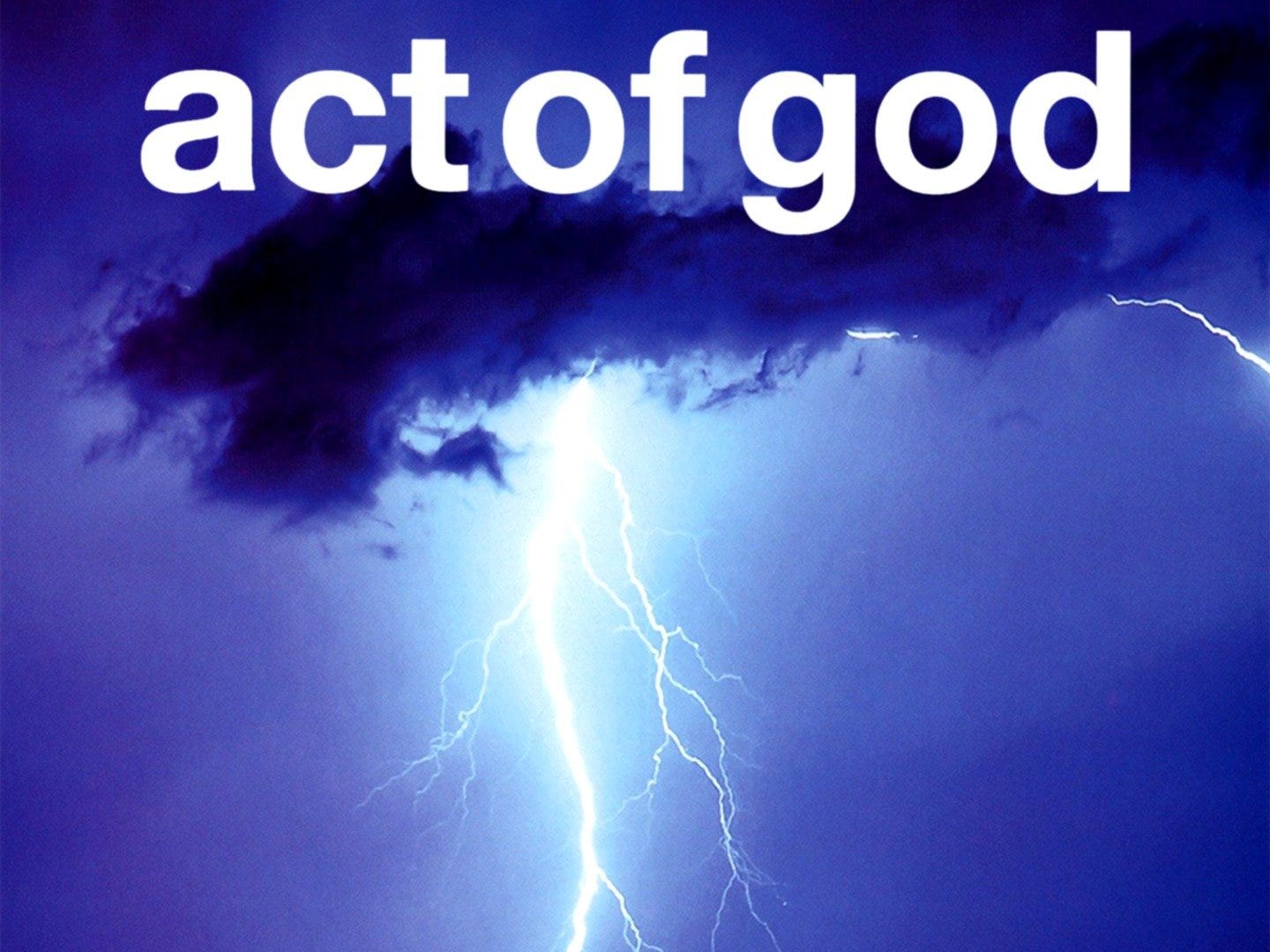Defining “Acts of God” Part I
“In ridiculing a pathetic human fallacy, which seeks explanation where none need be sought and which multiplies unnecessary assumptions, one should not mimic primitive ontology in order to challenge it. Better to dispose of the needless assumption altogether. This holds true for everything from Noah's flood to the Holocaust.”
Christopher Hitchens
Although there is a separation between Church and State in our country, God is frequently invoked in our legal tradition whenever the law speaks about "Acts of God" whenever unexpected disasters occur. When Hurricane Katrina flooded New Orleans in 2006, the insurance companies associated this flood as an "act of God."
For insurance purposes, one might wonder: If an Allstate Insurance Company surveyed the damage of Noah's flood, would it also qualify as an "act of God"? You might say, "Wait a minute! The flood in the story of Noah is an act of God! Did not God announce He was going to destroy sinful and violent people? But the insurance industry is not interested in theology; it is only interesting in establishing liability. When a lightning causes a fire to burn a house down, or when a tree fell upon homes after a tornado breezed through town, the implicit assumption is that nobody is at fault here—only God. Insurance companies know that they are responsible for compensating the insured party whenever an "act of God" occurs. God cannot be sued. Parenthetically I would add that in Jewish tradition, pious Jews have often "sued" God for a variety of alleged offenses—from failing to provide a dowry for a poor man's daughter to the allowing the Holocaust to occur. In every story, God was always a "no-show" at the trial. Collecting from an Almighty Deity is not something any collection agency is empowered to do.
Yet, "acts of God" and "apocalyptic" continue to be figures of speech that permeate secular language. The ancients frequently spoke about the "gods being angry" whenever they beheld something disastrous. Given these natural disasters' capriciousness, it was only natural for primal man to believe that God was "fickle" and could turn against a person on a dime. Biblical stories often depict God as having a quick-temper and is always ready to exterminate evil doers. When Noah left the ark, the first act of devotion to God involved offering God several sacrifices (Gen. 8:20). Most commentators think Noah wished to express his gratitude for being rescued with his family and animals. Let us propose a different deconstruction of the text. Noah felt God might someday lose His temper and destroy the world again. To prevent this from happening to his descendants, Noah offers the sacrifice as a bribe. The anthropologist E. B. Tylor (ca. 1832-1917) proposed the theory that sacrifice was essentially a business transaction between mortals and the gods based on the principle of do ut des ("I give so that you will give in return"). In modern terms, we refer to this bartering principle as, Quid pro quo ("something for something" in Latin). In other words, "You scratch my back, I'll scratch yours!" The sacrifice functions as a mutual exchange.
Maimonides’ Thoughts on an “Act of God”
In the ancient realm, everything in nature constituted an "act of God." Maimonides noted that the ancients regarded God as the "ultimate" reason why something occurred in nature. But as the ancient Greek scientists and mathematicians began observing the natural order, the "act of God" was simply another way of saying "natural phenomena." The more the human being progressed over the centuries, the field of geology taught man that one could account for all the seismic activities, hurricanes, tornadoes, and other natural disasters without ever having to evoke God into the picture. Modern scientists often assert that the world makes perfect sense without God. Anthropologists taught the ancients to use God to explain phenomena we otherwise do not understand.
Moreover, as science's precise and powerful way explained more of what humankind did not know in the pre-modern era, the value of God as the explanation for how the universe functions diminished. In the end, insofar as science and religion contend head to head, whether in explaining the origin of the species or why droughts and famine occur, secularists claim that faith consistently comes out the loser every time. Compared to the precision of the laboratory, it appears as muddled superstition. We, however, disagree with this position.



